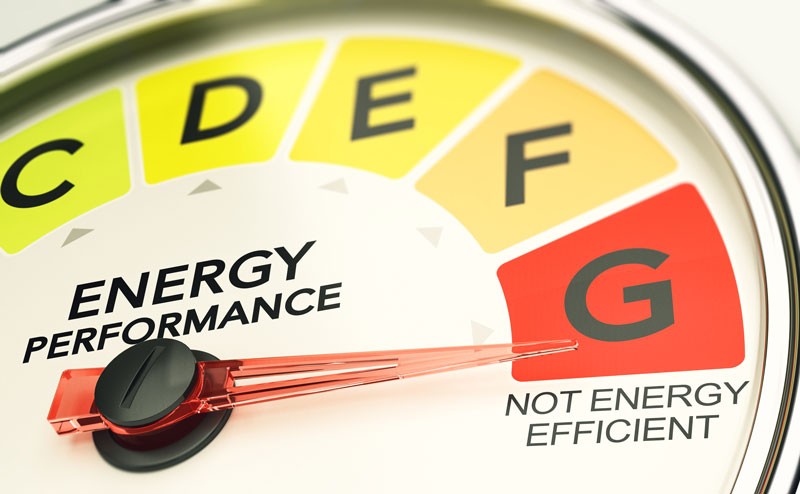Understanding The EPC Improvement for Landlords by 2025
How Are New EPC Requirements for Landlords Changing?
What Are the New EPC Requirements for Landlords?
The new EPC requirements for landlords stipulate that any rental property in England and Wales must have an EPC rating C or higher to be able to rent to a tenant. The requirement becomes law in 2025, meaning that landlords have until then to get their EPC level up to be able to take on new tenants.
However, if a landlord has a tenant in a domestic property before the new EPC regulations become law, they can continue to let the property to them as long as the EPC level is rated at an E or above until 2028 when they will need to have completed work to be able to comply with an EPC rating of C or above. If the tenancy agreement is dated after the law becomes official, they will need to improve the EPC to continue letting the property out.
What Are the EPC 2025 Legal Considerations for Landlords?
If you are a landlord, the new EPC regulations 2025 are something you cannot ignore, especially if you want to be able to continue to let to new tenants. One of the most important things to think about is that if your property has an EPC rating of less than C, it will already be less popular than those properties that are. This is mainly because tenants are becoming more aware of the impact of EPC ratings on their budget.
EPC ratings have long been impacting house sales, with people actively looking for high EPC ratings before they are willing to buy and this level of interest is now hitting the rental market as hard. If you are a landlord, you may be thinking about selling your low EPC property before the law comes into force, but you are unlikely to achieve a full market value if your rating is very low – meaning that you are either going to have to improve the EPC or accept a lower offer than you were hoping for.
Interestingly, less than half of the properties in the UK currently have an EPC rating of C or above, meaning that if yours does, or you are willing to invest in improving your EPC rating, you can be certain that you will have little trouble finding willing tenants.
What Happens if I Do Not Adhere to New EPC Regulations 2025?
Should you fail to improve your EPC rating before the regulations become law, you will not be able to let your property to new tenants until you do. This means the potential loss of income and a property that will stay empty and difficult to sell.
The most frightening fact currently is that many landlords are completely unaware of the changes that are due to happen, meaning that they are walking blindly into their business being stalled, resulting in a massive loss of money.
What EPC Exemptions Are There for Landlords?
As with any legal requirements, there are some exemptions that landlords can apply for. These include:
- Wall Insulation Exemption – for properties that are not able to have internal or external installation
- High Cost – for any improvement cost is that higher than £3500 for one thing
- Devaluation – when a RICS surveyor confirms that completing EPC renovations will drop the value of the property by more than 5%
- New Landlord – when a new landlord comes into possession of a property and cannot have all the required changes in place immediately. This gives them 6 months to comply
- All Improvements Made – when the landlord has done everything required to improve the EPC but it is still not above the required level
How Can I Improve My Property Energy Ratings?
Before you dive into completing a lot of renovation work on your property, it is important to talk to an EPC expert that can tell you which works will have the biggest impact. Many landlords are also investing in an EPC to get an idea of where they are currently at, so that any supplier they use knows the best places to provide support.
With your EPC in place, contact a service such as the one at Countrywide Roofing & Insulations to provide you with a quote for work so that you can start improving your rating. This can include things such as insulation, external coatings and more. You can also get loft and wall inspections completed to make sure that you are not losing energy due to leaks and gaps that are easily resolved.
What Level of Investment Will I Need to Improve My EPC Rating?
If you are keen to improve your EPC rating, you will need to think about financing the work that needs to be done. Many properties will require significant changes to get the EPC rating to a C or above and so working out how you are going to finance it is an important first step.
It's also important to note that lots of EPC work will include things such as retrofitting, which will mean that you can only get it done when you don't have any tenants living in the property – which will also reduce your income while it takes place. Currently, the average cost of having EPC work completed is around £9,000 and can take weeks and sometimes months to complete. With this in mind, it is important to engage a professional service provider that can give you a timed overview of the work that needs to be done and the cost of materials and labour so that you can decide what parts to proceed with and when to do it.
Where Can I Get Advice About EPC for Rental Properties 2025?
By accepting you will be accessing a service provided by a third-party external to https://countrywideinsulation.co.uk/



